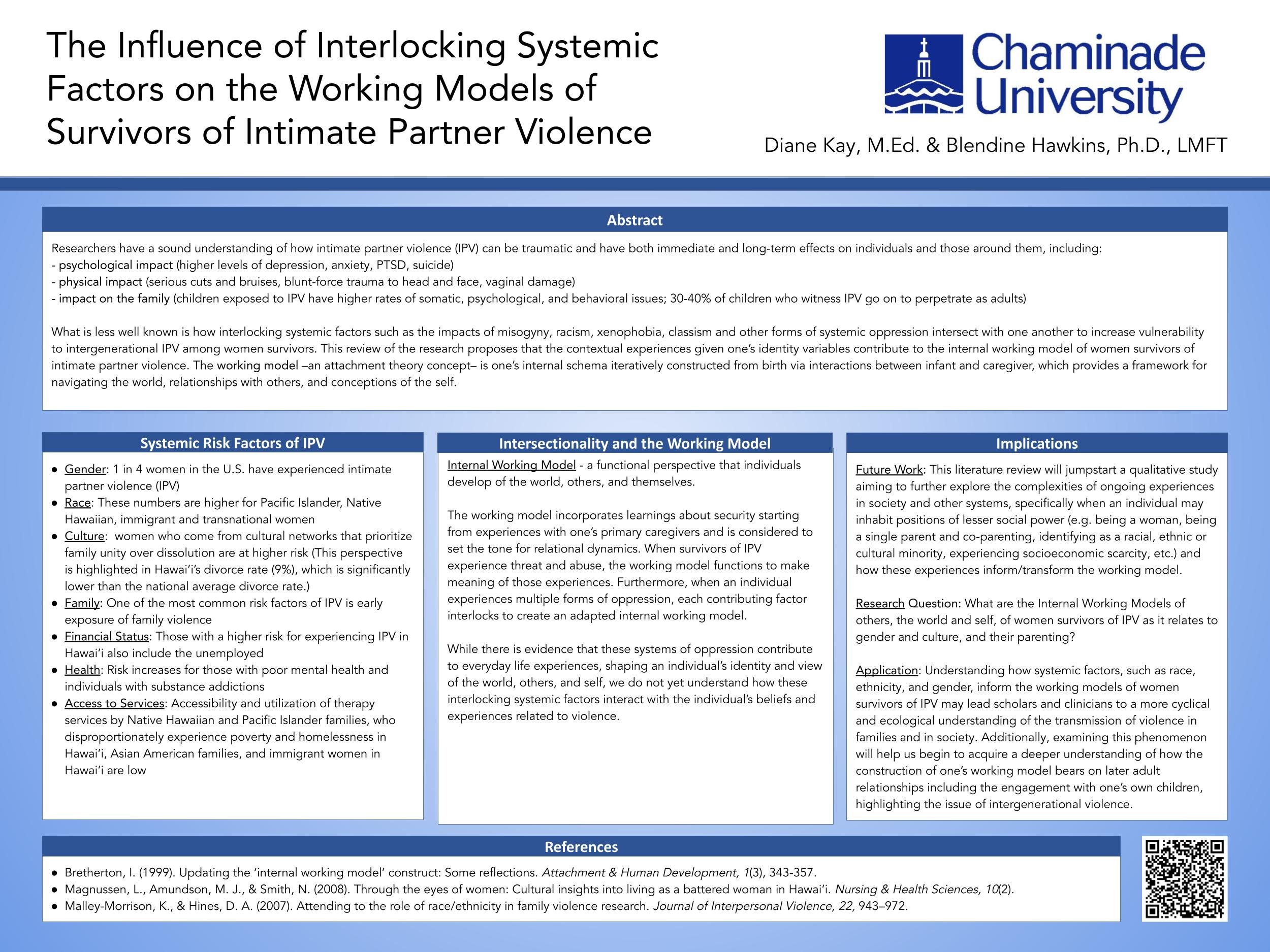Poster #21
The Influence of Interlocking Systemic Factors on the Internal Working Models of Survivors of Intimate Partner Violence
By: Diane Kay
Abstract:
Researchers have a sound understanding of how intimate partner violence (IPV) can be traumatic and have both immediate and long-term effects on individuals and those around them. What is less well known is how interlocking systemic factors such as the impacts of misogyny, racism, xenophobia, classism and other forms of systemic oppression intersect to increase vulnerability to intergenerational IPV among women survivors. This review of the research proposes that the contextual experiences given one’s identity variables contribute to the internal working model of women survivors of intimate partner violence. The working model –an attachment theory concept– is one’s internal schema iteratively constructed from birth via interactions between infant and caregiver, which provides a framework for navigating the world, relationships with others, and conceptions of the self. Understanding how systemic factors, such as race, ethnicity, and gender, inform the working models of women survivors of intimate partner violence may lead scholars and clinicians to a more cyclical and ecological understanding of the transmission of violence in families and in society. Additionally, examining this phenomenon will help us begin to acquire a deeper understanding of how the construction of one’s working model bears on later adult relationships including the engagement with one’s own children, highlighting the issue of intergenerational violence.

